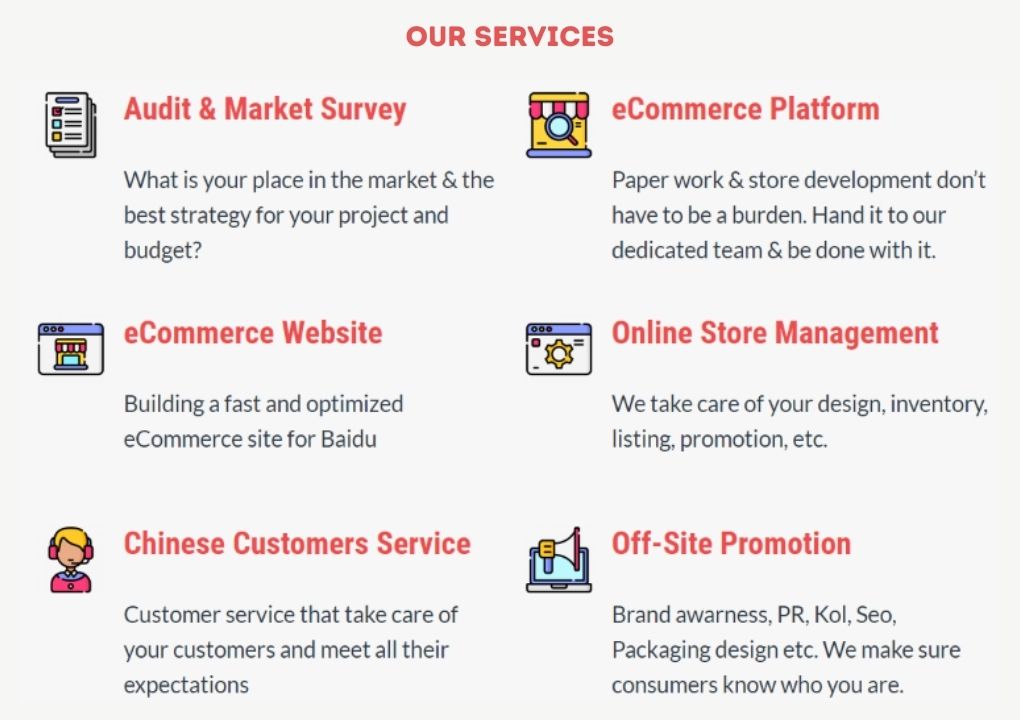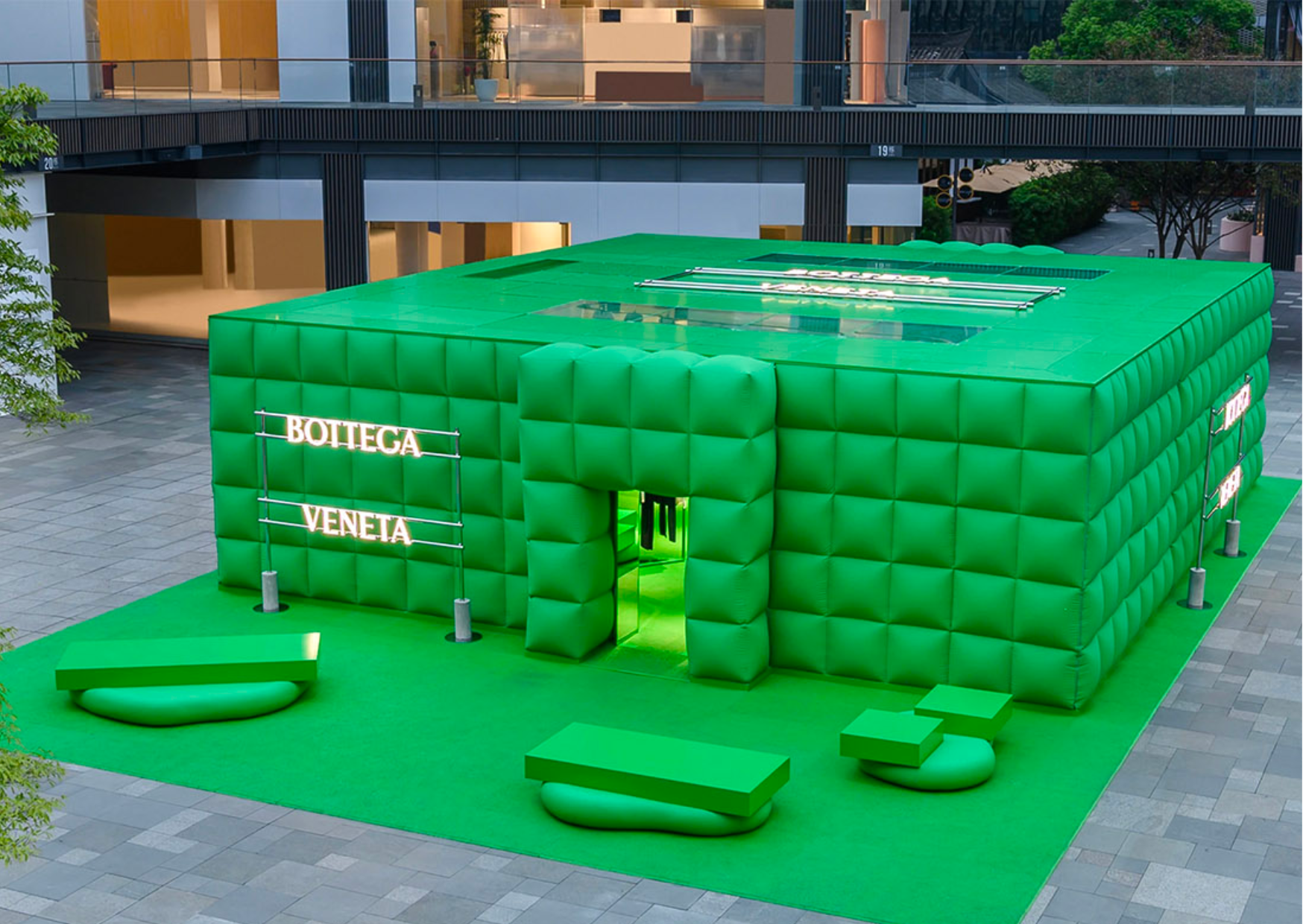China’s fashion market is growing rapidly, and to succeed, brands are using pop-up stores as a unique marketing strategy. Pop-up stores are a significant trend in China’s retail market, benefiting both consumers and fashion brands.
In this post, we will explore what makes pop-up stores so essential and how they contribute to China’s evolving fashion industry. Keep reading to learn more!
Overview Of China’s Fashion Retail Landscape
China’s fashion retail industry is changing due to the rise of a brand-conscious middle class with more purchasing power.
This has led to an increase in demand for better quality products and unique shopping experiences. Pop-up stores are becoming popular in China, mainly set up in malls, which is different from other countries.
Shein, a Chinese fast-fashion retailer, is an example of a brand that has become popular among Gen Z due to its affordable prices and social media strategies.
Pop-up Stores In China’s Fashion Retail Landscape
Pop-up stores, often referred to as “popup retail,” are temporary stores that allow brands to market and sell their products in a unique and engaging way.
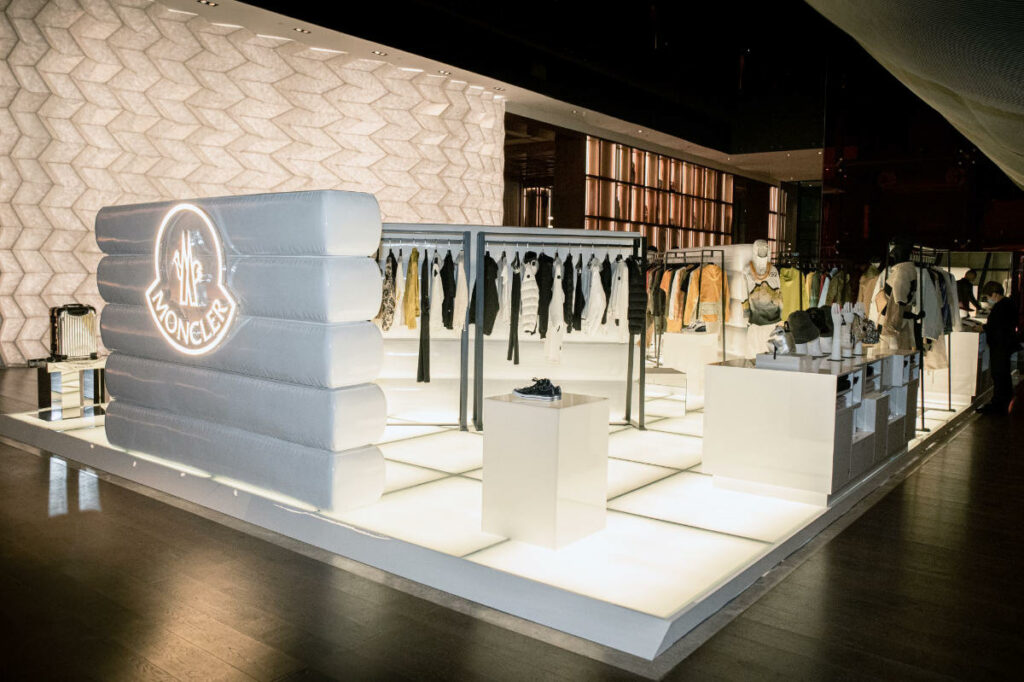
Definition And Importance
Pop-up stores are important in China’s fashion retail industry as they can generate brand awareness and capitalize on impulse buying behavior. Shopping malls in China are popular and attract high foot traffic, making them ideal for pop-up stores.
By using experiential marketing through well-designed pop-up stores, brands can create deeper connections with potential customers and offer them unique experiences with their products or services.
For instance, consider how luxury fashion brands like Gucci or Dior collaborate with local influencers and artists to create immersive artistic spaces that showcase their latest collections and resonate strongly with Chinese consumers.
Evolution And Current State
Pop-up stores in China’s fashion retail industry have evolved rapidly due to changing consumer behavior and advancements in technology.
They are used by brands as a way to create memorable interactions with customers through limited-time offers, event marketing strategies, and exclusive collaborations.
Pop-up stores are a vital tool for brand activation and customer engagement, helping brands stay relevant in an omnichannel retailing environment.
For example, luxury companies like Gucci tapped into this trend by organizing Chinese New Year-themed pop-ups that showcased exclusive collections tailored explicitly for the occasion – creating not just sales but strong brand affinity amongst its audience base.
Case Studies Of Successful Pop-up Stores In China
Some notable cases where pop-up stores have aided brands in achieving their marketing goals in China, here are a few successful case studies:
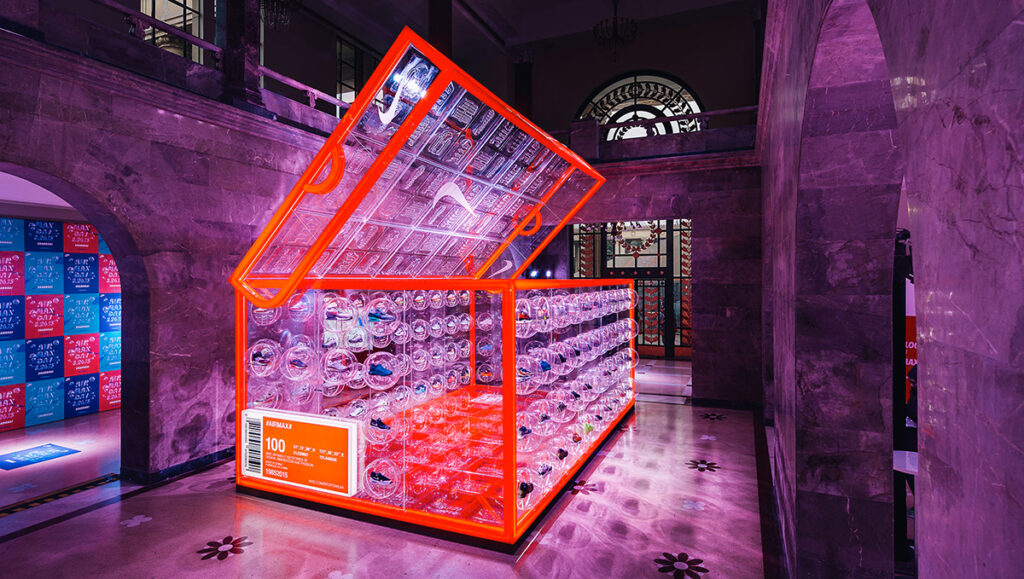
- Nike: Nike’s pop-up store in Shanghai attracted over 20k visitors in just three days in 2017. The store’s exclusive products and limited editions created hype for the brand among Chinese consumers, reinforcing its position as a premium athletic brand.
- Louis Vuitton: Louis Vuitton launched a romantic-themed pop-up store in Chengdu with VR technology integration to promote its Autumn/Winter 2019 collection on Chinese Valentine’s Day. The unique experience boosted sales and enhanced consumer engagement.
- Adidas: Adidas created an activation space with interactive games and virtual reality experiences for running enthusiasts at Nanjing West Road Plaza ahead of the Shanghai Marathon 2020. They used social media platforms like WeChat to drive traffic and increase brand exposure.
- H&M: H&M opened a pop-up store in Beijing to launch its Conscious Exclusive Collection. They sold recycled clothes and eco-friendly accessories, and encouraged customers to shop sustainably.
Pop-up stores can help brands reach sales targets, engage customers, and create awareness for new products. They do this by providing immersive experiences that connect with Chinese consumers in different ways.
Benefits And Challenges For Fashion Brands In China Using Pop-up Stores
Fashion brands in China can benefit from pop-up stores by increasing brand awareness, testing the market, engaging customers, and creating a sense of massclusivity.
Benefits: Brand Awareness, Market Testing, Customer Engagement, Etc.
It’s important to understand the benefits of pop-up stores in China’s fashion retail landscape. Here are some key advantages that pop-up stores can provide for fashion brands:
- Building Brand Awareness: Pop-up stores help brands create buzz and attract Chinese consumers who may not know them. They set up a temporary store in a busy area to get noticed and increase visibility.
- Testing the Market: Pop-up stores are a low-risk way for fashion brands to test the market in China. They can see if Chinese consumers are interested in their products and learn about their preferences and behavior before making a bigger investment.
- Engaging Customers: Pop-up stores let fashion brands connect with customers on a personal level. They use interactive displays and experiential marketing to create memorable experiences that leave a lasting impression.
- Driving Sales: Pop-up stores can increase fashion brand sales in the short term by promoting impulse purchases or limited edition products. They can also drive online sales by encouraging customers to visit the brand’s e-commerce site after visiting the physical store.
By leveraging these benefits, pop-up stores can be an effective tool for fashion brands looking to establish themselves in China’s competitive retail landscape.
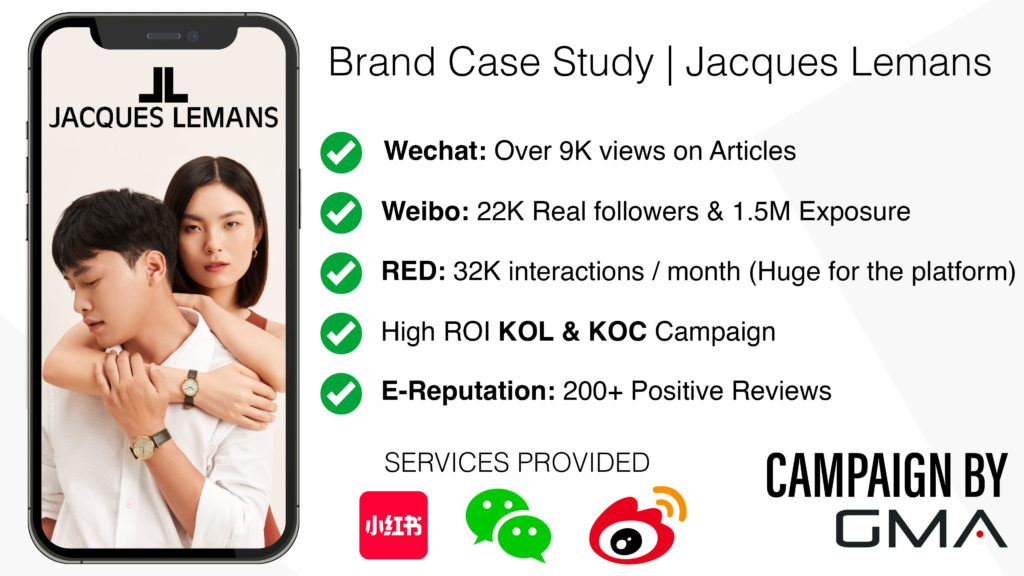
Key Strategies For Successful Pop-up Stores In China
For a successful pop-up store in China, it’s important to target the market and customize their experience, use social media and digital marketing, collaborate with local influencers or designers, and focus on visual merchandising and store design.
Understanding The Target Market And Experience Customization
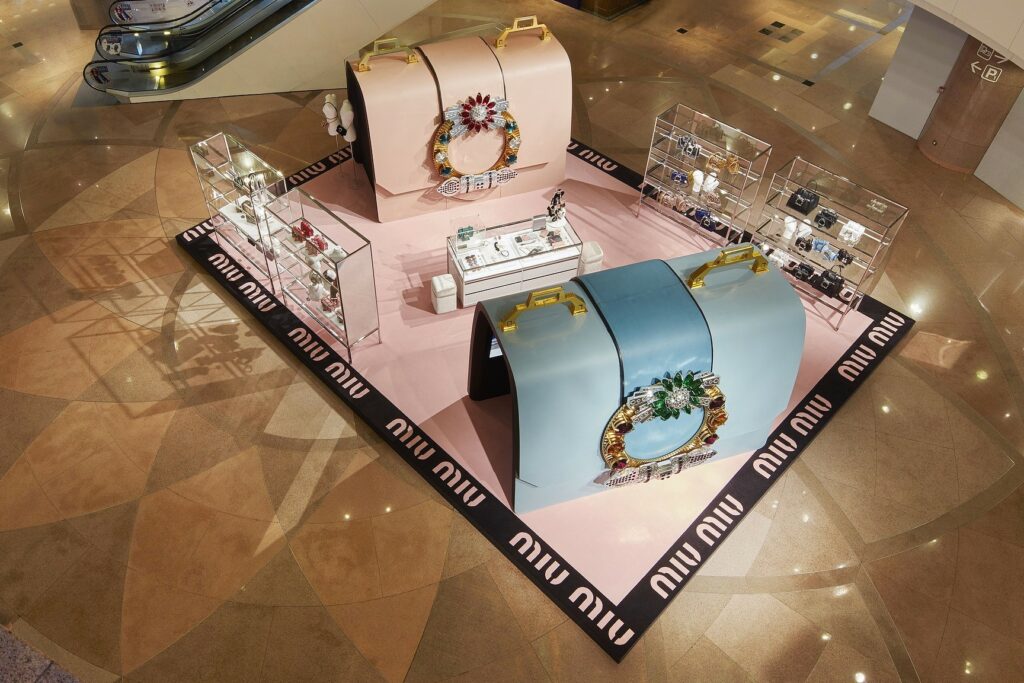
One of the key strategies for successful pop-up stores in China’s fashion retail landscape is understanding the target market and customizing the experience accordingly.
Luxury brands in China’s fashion retail industry should consider factors like consumer behavior and use technology like AR/VR to create immersive experiences in pop-up stores. They can also offer personalized services like styling sessions and customization options.
Social Media Leveraging And Digital Marketing Strategies
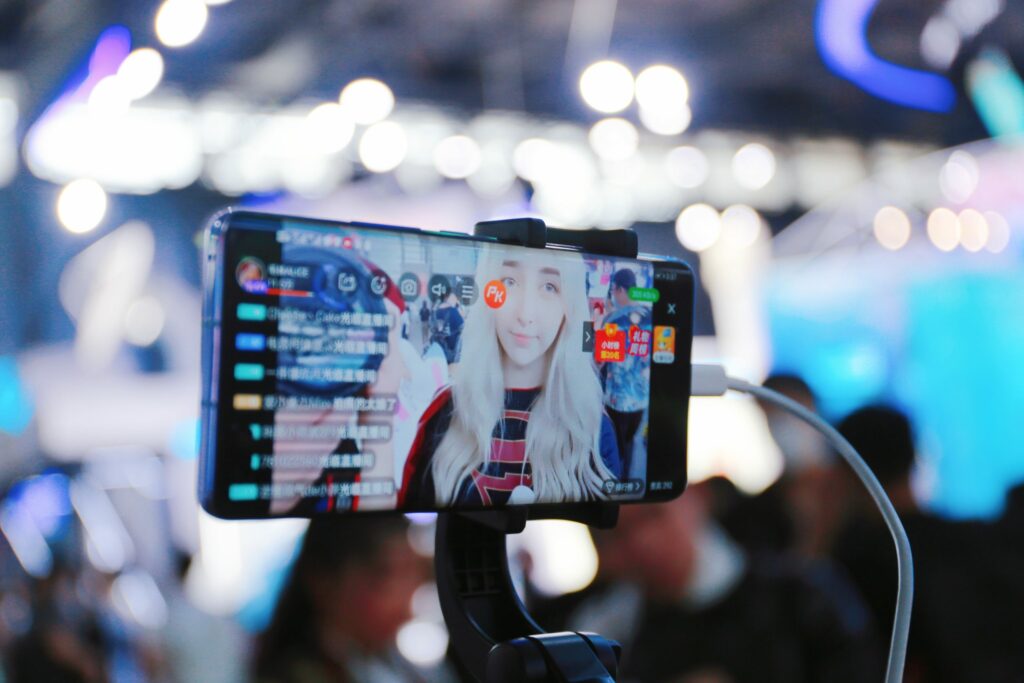
It’s crucial to be aware of the power of social media leveraging and digital marketing strategies when it comes to launching successful pop-up stores in China.
Most Chinese consumers use social media platforms like WeChat, Douyin, and Xiaohongshu to get information and make purchase decisions.
For instance, brands can partner with local influencers who have millions of followers on these platforms to push sales directly to China’s vast consumer market and generate buzz around their pop-up stores without spending much on traditional advertising campaigns.
It’s also important for fashion retailers targeting China’s market to create personalized experiences for customers by offering discounts or loyalty programs based on big data analytics.
Partnerships And Collaborations (with Local Influencers, Designers, Other Brands, Etc.)
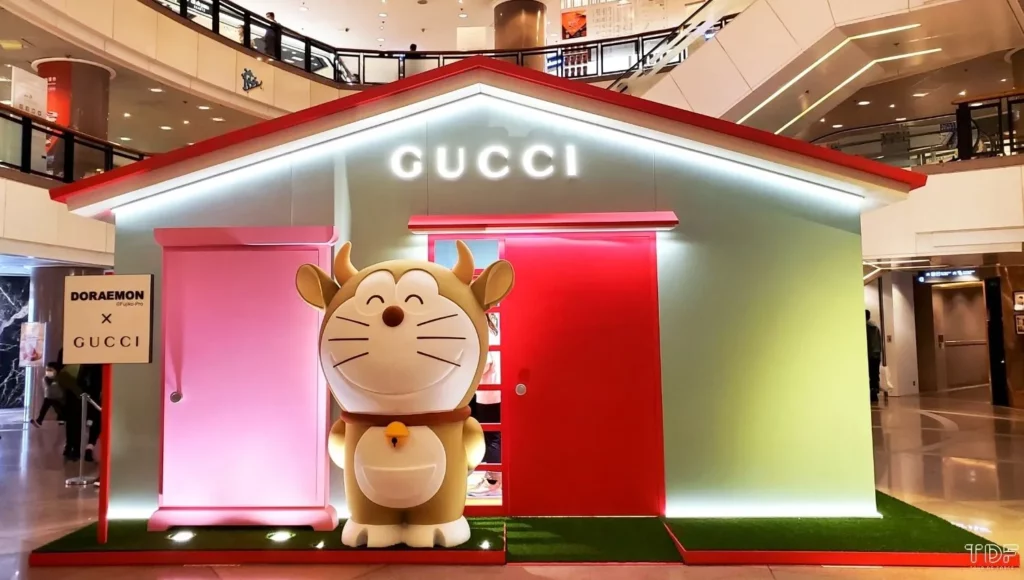
Collaborations and partnerships are important for pop-up stores in China. Fashion brands use influencer marketing to connect with consumers.
Partnering with local influencers helps build trust and tap into their fanbase. Collaboration marketing is also useful for leveraging strengths with other brands or designers.
Emerging Trends And Opportunities For Pop-up Stores In China’s Fashion Retail Industry
Pop-up stores in China’s fashion retail industry can benefit from emerging trends and opportunities such as technology integration (AR/VR, AI, live streaming), expanding to lower-tier cities, eco-friendly/sustainable practices, and leveraging events/festivals for brand exposure.
Technology Integration And Immersive Experiences: AR/VR, AI, Livestreaming, Etc.
Immersive technology is important for retail, improving personalized shopping experiences in China. Brands use AI, live streaming, and immersive technology in pop-up stores to explore new markets. Key points to consider include:
- AR and VR technologies: brands and retailers use immersive experiences to attract customers and boost social commerce.
- Livestreaming helps brands showcase products in interactive events that engage customers.
- AI-powered chatbots help shoppers instantly by answering their product questions and suggesting items based on their interests.
- The metaverse with its extended, augmented, and virtual reality technologies, can expand the physical world and create new pop-up store opportunities for fashion retail.
- In-store experiences are now augmented by technology. Selling more than just goods and services. It involves participation and co-creation, creating new opportunities for pop-up stores to try out emerging technologies in fashion retail.
Expansion To Lower-tier Cities: Opportunities And Strategies
As the Chinese economy grows, fashion brands are expanding their presence in lower-tier cities. These cities have a large and growing consumer base with rising disposable incomes and a love for luxury goods.
During Alibaba’s Singles’ Day shopping event, consumers from lower-tier cities outspent those from higher-tier ones by almost 70%.
To expand into these markets, brands use strategies like collaborating with local influencers or designers, offering exclusive products, and creating unique pop-up stores.
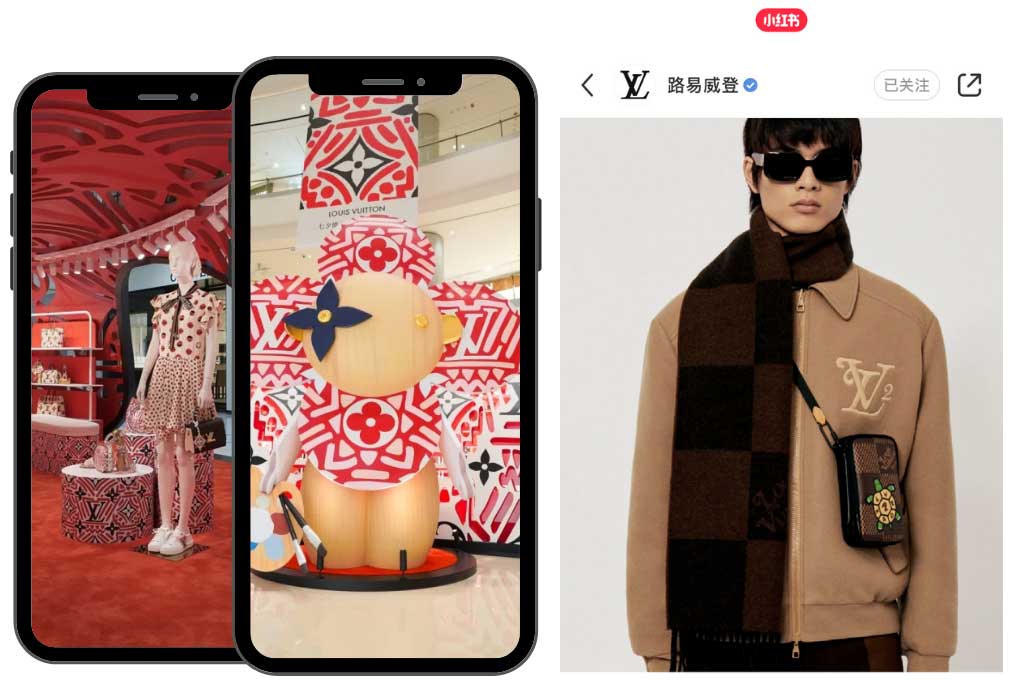
Eco-friendly And Sustainable Practices In Pop-up Retail
Eco-friendly practices are important for fashion brands in China due to the growing concern for sustainability.
Pop-up stores provide a chance for brands to showcase their commitment to the environment and test market demand.
For instance, H&M’s “Conscious Pop-up” store in Beijing used recycled paper bags and displayed clothing made from organic cotton. Some pop-ups even use plant-based materials in their designs.
Case Studies: Success Stories Of Pop-up Stores In China

Discover how global luxury brands such as Gucci, Burberry, Fendi and Bottega Veneta are using pop-up stores in China to showcase new concepts and products in our insightful case studies section.
Lessons Learned And Best Practices
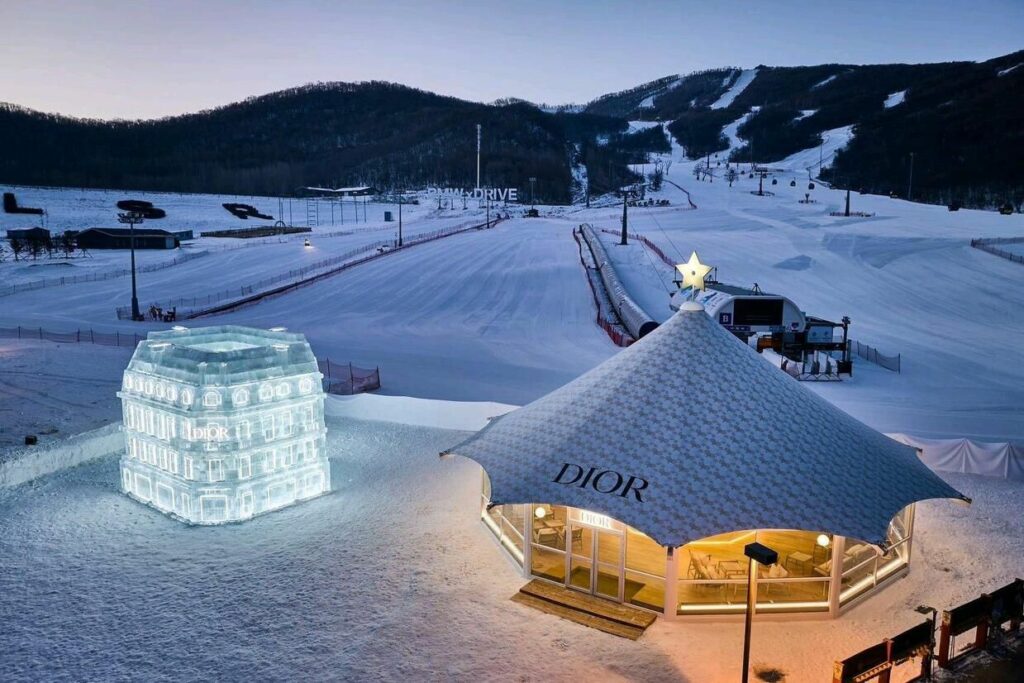
For example, Nike collaborated with a popular local streetwear brand to open a pop-up store focused on basketball culture in Shanghai during the NBA All-Star Weekend.
Social media and digital marketing are important for engaging customers before, during, and after their visit to a pop-up store. Dior launched an AR-powered pop-up store in Beijing where visitors could try virtual sunglasses via WeChat Mini-Programs or smart mirrors.
Partnerships and collaborations can help brands leverage local expertise and build buzz around new collections or product launches. Burberry teamed up with Tencent Games during Singles Day shopping festival in 2020 to create an online-to-offline experience for its latest collection.
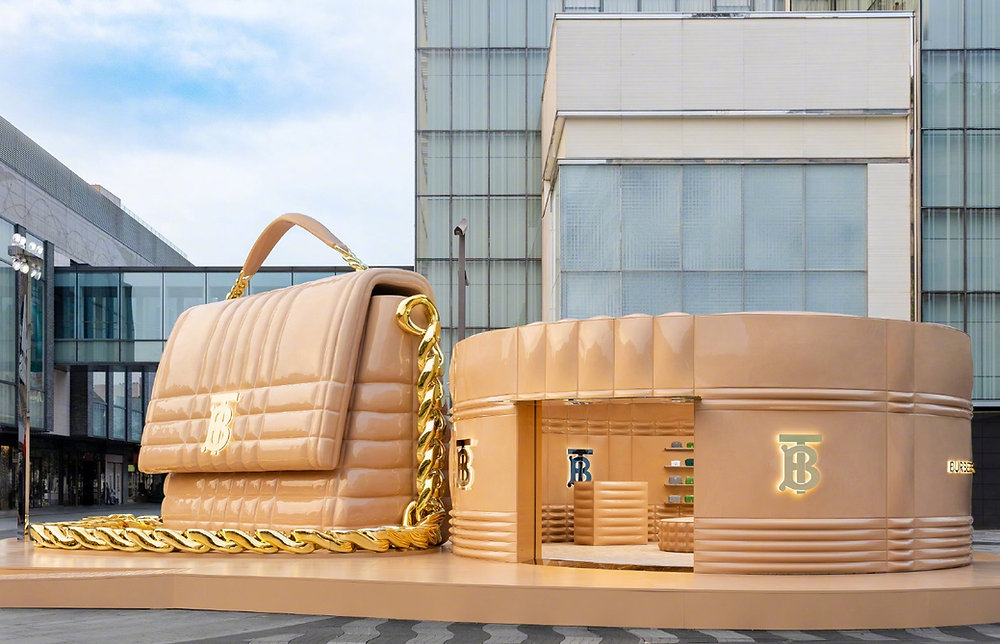
We can help you to develop your pop-up stores in China!
In conclusion, pop-up stores are a valuable asset for fashion brands seeking to enter or expand into China’s highly competitive retail market.
Despite facing various challenges and cultural nuances, the benefits of using pop-up stores outweigh the risks, offering opportunities for brand awareness, customer engagement, and market testing.
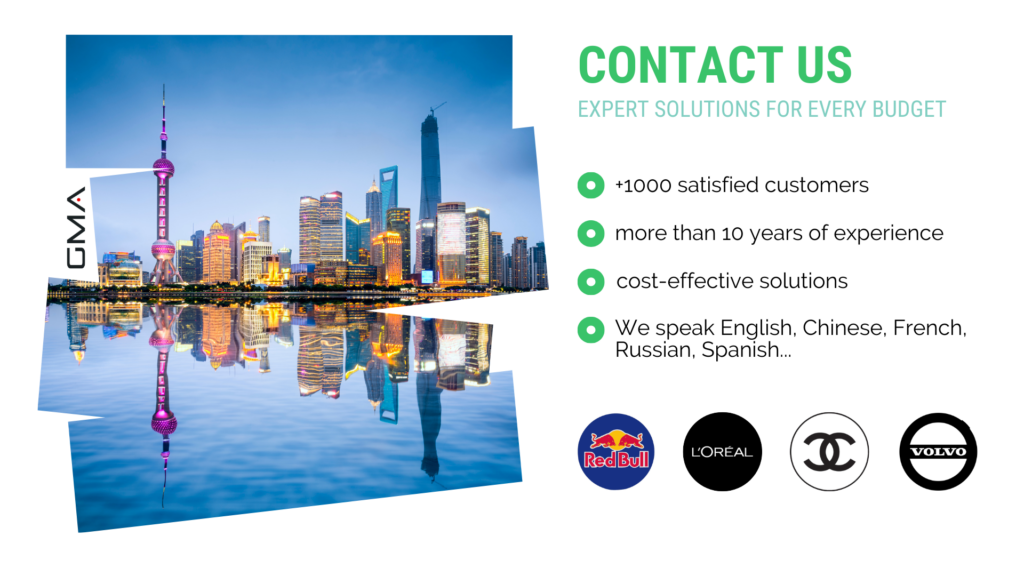
If you need help getting your brand off the ground or integrating your strategies into Baidu, you know where to turn to. Contact us today for not only educational blogs but to have a partner in building your business and making it relevant in the minds of the Chinese consumer.
